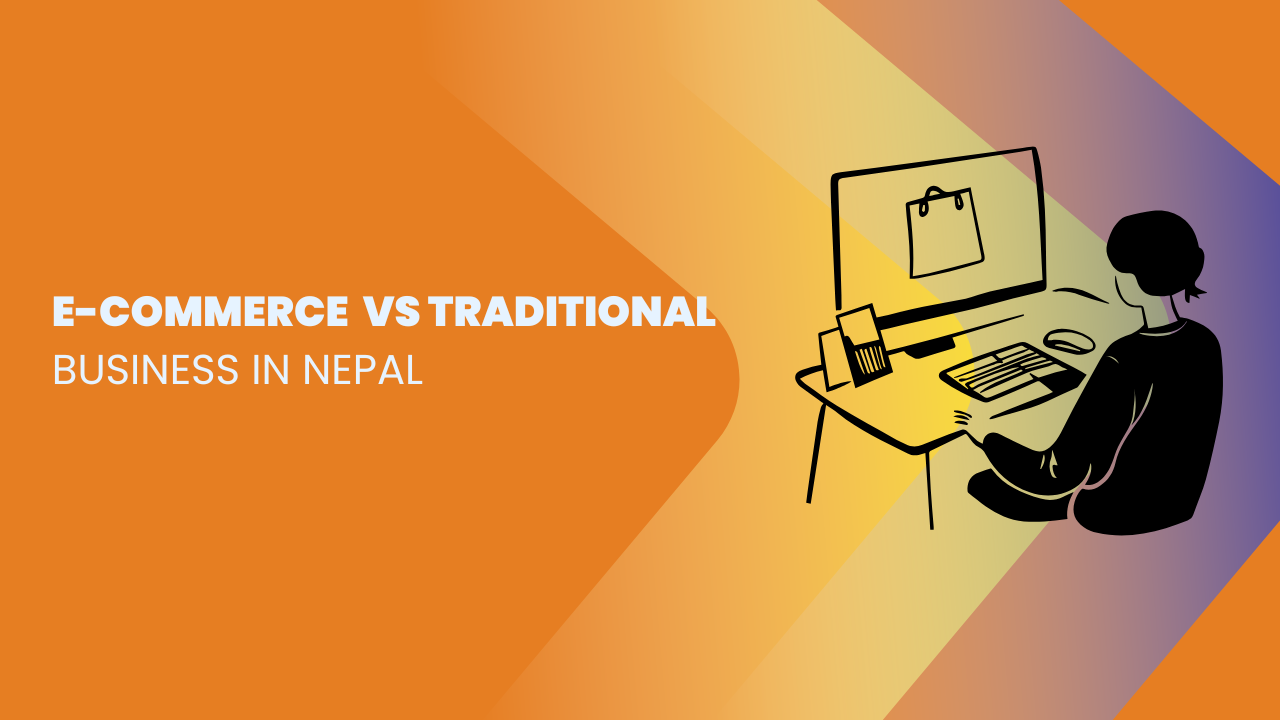Share this Article
Introduction: The Digital Transformation of Commerce in Nepal
E-commerce in Nepal is no longer a distant concept. With the rapid rise of internet penetration, smartphone usage, and digital payment adoption, online shopping has become an essential part of modern consumer behavior. What was once limited to large urban centers has now expanded to reach customers across the country. Entrepreneurs and small businesses are recognizing the potential of online platforms to reach new audiences, reduce operational costs, and scale their operations. In this evolving landscape, understanding the trends, opportunities, challenges, and strategies for e-commerce success in Nepal has become crucial for any business looking to thrive.
The Rise of E-Commerce in Nepal
Over the past decade, Nepal has witnessed a remarkable surge in online businesses. The growing accessibility of smartphones and affordable internet data has made it possible for millions of Nepali consumers to browse, compare, and purchase products online. Mobile wallets and digital payment solutions such as eSewa, Khalti, and ConnectIPS have further facilitated online transactions, making cashless payments a convenient and secure option for both buyers and sellers. In addition, the COVID-19 pandemic accelerated digital adoption, prompting many traditional businesses to transition online to survive and grow. This digital shift has created a fertile environment for both emerging and established entrepreneurs to explore new opportunities in e-commerce.
Key E-Commerce Trends in Nepal
One of the most notable trends in Nepal’s e-commerce sector is the dominance of mobile shopping. A majority of consumers access online stores through mobile devices, which has made mobile-optimized websites and apps a necessity for businesses seeking success. Social media commerce has also emerged as a powerful channel for product promotion and direct sales. Platforms like Facebook, Instagram, and TikTok enable businesses to engage with customers through interactive content while simultaneously driving sales without the need for a full-fledged website. Nepali consumers are increasingly drawn to local and niche products, valuing authenticity and quality. Handmade crafts, organic products, and unique fashion items have gained popularity, reflecting a growing preference for products that carry cultural significance or artisanal value.
The shift toward cashless transactions is another significant trend shaping the online marketplace. While cash-on-delivery remains popular, an increasing number of consumers now prefer digital payments due to convenience and security. Personalization has also become an important factor in e-commerce, with businesses offering tailored shopping experiences, product recommendations, and promotions based on customer behavior. Entrepreneurs who can anticipate and meet these evolving expectations are more likely to gain a loyal customer base and achieve sustainable growth.
Opportunities for Entrepreneurs in Nepali E-Commerce
Nepal’s e-commerce landscape offers numerous opportunities for entrepreneurs seeking to establish a strong online presence. The fashion and apparel sector is one of the fastest-growing categories, with clothing, accessories, and footwear experiencing consistently high demand. Electronics and gadgets continue to attract significant consumer interest, especially smartphones, laptops, and home electronics. The beauty and wellness market is also thriving, with skincare, cosmetics, and wellness products capturing the attention of urban customers. Entrepreneurs have the chance to promote handmade and local products online, supporting artisans and offering unique products that cannot be found in traditional stores. Online grocery and essential goods have emerged as another growing sector, with consumers seeking convenience and home delivery for daily necessities.
Emerging business models such as subscription services and niche product offerings are creating further opportunities. Subscription boxes for beauty, health, or food products allow businesses to maintain consistent revenue while providing value to customers. Entrepreneurs who focus on quality, authenticity, and customer satisfaction can leverage these opportunities to differentiate themselves in a competitive marketplace.
Challenges in Nepali E-Commerce
Despite the rapid growth and potential, e-commerce in Nepal faces a range of challenges that businesses must address. Logistics and delivery infrastructure remain critical obstacles, particularly in remote areas with limited transportation access. Delayed deliveries can negatively impact customer satisfaction, making it essential to partner with reliable courier services. Trust and payment security also remain concerns, as many customers are cautious about online transactions. Ensuring secure payment gateways and transparent policies is vital for building credibility and customer confidence.
Competition within the e-commerce sector is increasing, requiring businesses to invest in effective marketing, branding, and customer engagement strategies. Legal and regulatory compliance presents another challenge, particularly for businesses importing products from abroad. Entrepreneurs must navigate customs procedures, taxes, and regulatory requirements to operate successfully while avoiding penalties. Addressing these challenges strategically allows businesses to establish a strong foundation and position themselves for long-term growth.
Strategies for E-Commerce Success in Nepal
To succeed in Nepal’s competitive online market, businesses must prioritize customer experience and operational efficiency. Building a user-friendly platform with intuitive navigation, fast load times, and a mobile-optimized interface is crucial for retaining customers. Social media can be leveraged to engage audiences, promote products, and build brand awareness, while high-quality product images, detailed descriptions, and premium packaging enhance credibility and trust.
Offering multiple payment options, including digital wallets, bank transfers, and cash-on-delivery, caters to diverse customer preferences and simplifies the purchasing process. Exceptional customer service, including prompt responses, clear return policies, and proactive post-purchase support, is essential for customer retention. Utilizing data and analytics to track customer behavior, monitor sales trends, and optimize marketing efforts allows businesses to make informed decisions and continuously improve their operations.
Entrepreneurs should also focus on building a strong brand identity. This includes creating a memorable brand name, consistent visual elements, and messaging that resonates with the target audience. Seasonal promotions, loyalty programs, and personalized campaigns further strengthen customer engagement and drive repeat sales. By continuously innovating, adapting to market trends, and maintaining high standards, businesses can achieve sustainable growth in the Nepali e-commerce sector.
The Future of E-Commerce in Nepal
The future of e-commerce in Nepal is promising, with technology, infrastructure, and consumer behavior aligning to create a favorable environment for online businesses. Continued improvements in digital infrastructure, faster internet connectivity, and wider adoption of smartphones will enable more consumers to access online shopping platforms. Innovations such as artificial intelligence-driven product recommendations, augmented reality for product visualization, and faster delivery systems will enhance the online shopping experience and increase customer satisfaction.
For entrepreneurs, understanding local consumer preferences, investing in technology, and maintaining high service standards will be critical for success. The combination of market knowledge, digital expertise, and operational excellence will allow businesses to capitalize on emerging opportunities and establish a competitive edge in Nepal’s growing e-commerce ecosystem. E-commerce is no longer a peripheral strategy; it is becoming the core of modern retail in Nepal.
Conclusion
E-commerce in Nepal presents significant opportunities for businesses of all sizes. From fashion and electronics to local crafts and daily essentials, the online marketplace allows entrepreneurs to reach wider audiences, increase sales, and scale operations efficiently. By embracing digital strategies, optimizing customer experience, and addressing logistical and regulatory challenges, businesses can thrive in this rapidly evolving market. The key to success lies in understanding the Nepali consumer, leveraging technology effectively, and building trust through quality products and exceptional service. As the sector continues to grow, e-commerce will play a central role in shaping the future of retail in Nepal.
Categories:
Beginner’s Guides
Tags:
EcommerceTipsNepal
,
SellOnlineNepa
,
BusinessInNepal







